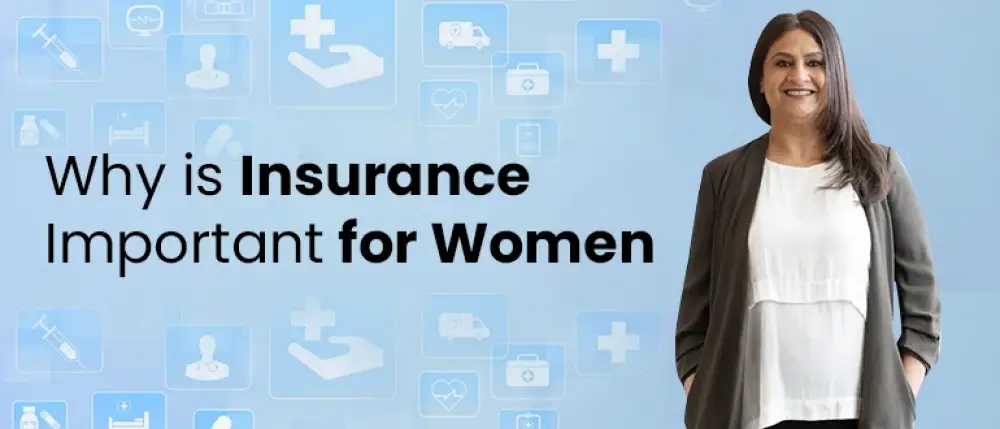A marginalised section refers to a group not part of the mainstream society or established communities. This group of people is vulnerable and left out of any policy benefits due to discrimination, social barriers, financial constraints, and illiteracy. Some common examples of marginalised people are underprivileged women, children, disabled people, scheduled castes, and tribes. Marginalised women have minimal coverage under women's health insurance policies compared to other social groups.
This blog explores the challenges marginalised women face in accessing women's health insurance coverage and why insurance is important for women in such communities.
Barriers to Accessing Health Insurance Coverage
Many marginalised women face barriers when it comes to accessing women’s health care coverage. Below are some of the common issues that these women face.
Lack of Healthcare Facilities
Women living in remote areas cannot access adequate healthcare because rural areas lack proper healthcare infrastructure, and healthcare facilities are far away. For families without any mode of transport, it becomes impossible to travel long distances, even during medical emergencies.
Financial Constraints
Women from low-income households often struggle to access healthcare, which unfortunately leads to high mortality rates. Due to the high cost of medical treatment, many women are unable to afford it and end up delaying necessary medical care, worsening their health. During emergencies, these women rely on public healthcare, which is often insufficient and inaccessible.
Illiteracy
Since these women are uneducated, they do not understand the importance of women’s health insurance coverage. They are unaware of the various healthcare schemes available and cannot access them.
Lack of Documentation
Because of illiteracy, marginalised women do not realise the importance of having the necessary documentation. This lack of proper documentation makes it difficult for them to obtain insurance coverage and access healthcare schemes.
Social Barriers
Women are most disadvantaged in terms of healthcare in rural areas because of social practices, the stigma associated with women's health issues, and constant scrutiny by a patriarchal society. These social barriers discourage women from even discussing their health issues.
Importance of Health Insurance Coverage for Marginalised Women
Health insurance coverage for marginalised women can be a game-changer in improving access to health care.
Timely Medical Care
Having health insurance coverage is crucial for marginalised women as it ensures that they receive timely medical care. This, in turn, reduces mortality rates. Timely treatment is crucial for women suffering from treatable chronic diseases. Moreover, health insurance coverage allows pregnant women to access medical care on time, which can help reduce complications during pregnancy.
Preventive Care
Regular health checkups and vaccinations can protect women from potential health risks. Health insurance policies for women often offer benefits such as mammograms, Pap smears, and other screening tests that help detect and prevent severe health conditions such as breast cancer and cervical cancer. Critical illnesses can be detected early with the help of preventive checkups and can be entirely cured with timely treatment.
Financial Independence
Health insurance coverage covers medical expenses, allowing women to access healthcare independently without worrying about the cost and without depending on their partners or family members.
Women-Specific Health Coverage
Women often need specialised medical care during pregnancy or when facing reproductive health issues. Health insurance coverage addresses women-specific health concerns and provides support during difficult times. This coverage ensures that women have access to the necessary medical treatment, medications, and procedures to maintain their health and well-being. It also includes coverage for prenatal care, childbirth, and postnatal care, essential aspects of reproductive health.
Access to Quality Healthcare
Health insurance companies have their network of hospitals where the insured can get cashless treatment. Women’s healthcare coverage will ensure that marginalised women have access to quality healthcare.
Overall Well-Being of Family
When a woman is healthy and informed about her rights, she passes this knowledge on to her family. Health insurance coverage gives her access to quality medical care, which allows her to take better care of her family. She ensures that all her family members are covered and can receive the medical attention they need.
Conclusion
Health insurance coverage for marginalised women should be designed keeping in mind the challenges faced by these women. It should address all women-specific health concerns and not just provide maternity coverage. A policy covering reproductive health issues such as PCOS, endometriosis, etc., will be the best health insurance for single females facing these health issues and can help improve the quality of their lives. Women's health insurance coverage ensures that they receive the care and support they need to lead healthy and fulfilling lives. A positive change in the lives of marginalised women can contribute towards building healthier and progressive communities.
With its vast network of 11500+ cashless hospitals and 21700+ cashless healthcare providers, Care Health Insurance recognises the importance of providing a comprehensive health insurance policy for women. This is a crucial step towards empowering marginalised women to prioritise their health. The company has settled over 58 lakh claims and has covered over seven crore lives through customisable health insurance solutions for its customers.
>> Also Read: Why Should Women Choose to Buy Health Insurance Plans?
Disclaimers: The above information is for reference purposes only. For more details about the health insurance plans and their benefits please refer to the sales prospectus, policy terms, and conditions.
